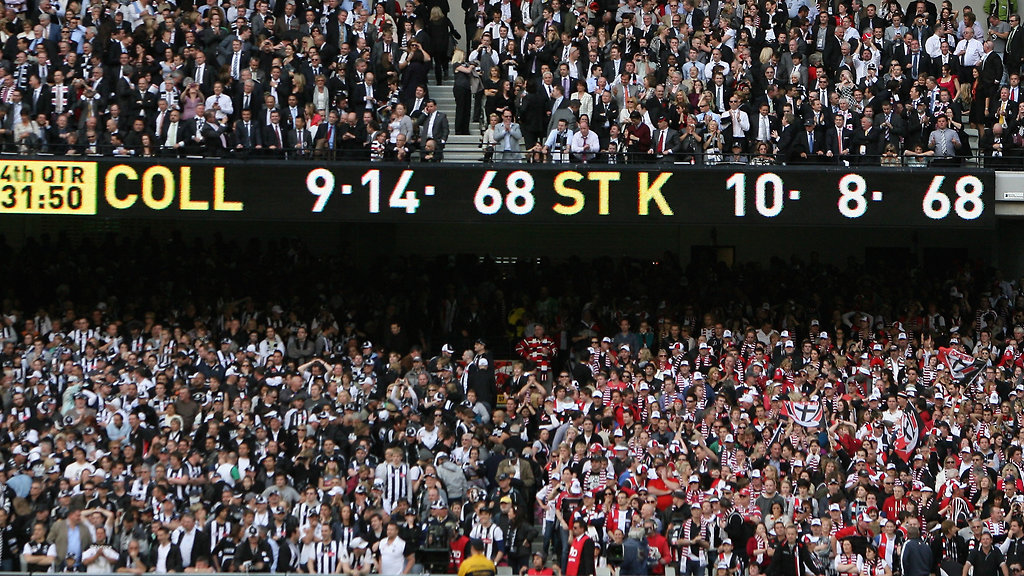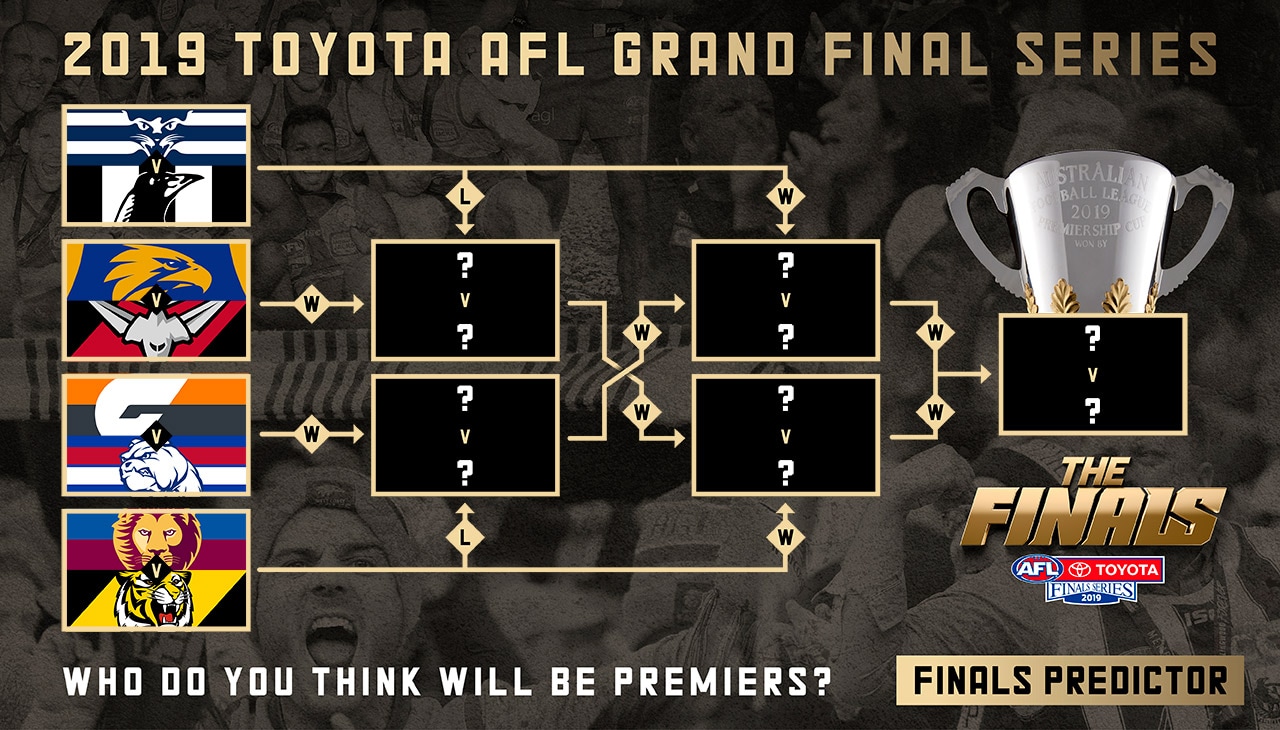THE AFL often espouses the virtues of fairness and integrity, yet it still has a rule that could unfairly decide a premiership.
And what's more, the League doesn't see the need to change the rule and thus avert the potential for injustice and outrage.
The rule in question is the 'golden score' novelty, and only luck has saved the AFL from monumental embarrassment in the three years the rule has been in place.
In April 2016 the League dispensed with Grand Final replays, deciding that drawn Grand Finals would be resolved during extra time, comprising two five-minute halves each way, plus time-on.
The final score after the 2010 Grand Final. Picture: AFL Photos
No issues there.
However, if the teams are again tied after extra time, play would continue uninterrupted and the final siren would only sound when the deadlock was broken by a premiership-deciding golden score.
That's all perfectly satisfactory on a perfectly still day. But what if a breeze favours one end?
Admittedly, if there's wind at the MCG it generally swirls, but it can favour an end.
The World Cup cricket final in July was an epic contest marred by a farcical finish that left many fans stumped
Imagine this. Team A has the wind in the first period of extra time and rattles on three unanswered goals, before Team B returns the favour in the second period to level the scores again.
Team B, which remains aided by the breeze for the rest of the contest regardless of how long it continues, locks the ball in its front half. Team A defends gallantly for the next 10 minutes but is eventually overwhelmed and concedes a behind.
Team B wins the premiership by the barest of margins after having the breeze for 15 of the 20 minutes of extra time.
Grand Final replays were initially abolished to make it fairer for non-Victorian teams, but where's the fairness in this hypothetical situation?
West Coast won the Grand Final in 2018 over Collingwood by just five points. Picture: AFL Photos
In this instance the integrity of our game's Holy Grail – the premiership – would be compromised.
Without doubt, the kneejerk reaction would be to belatedly change the rule. Which only begs the question: why wait for this scenario to explode when it can be fixed now?
The golden score concept could also cast undue influence over which teams actually make the Grand Final, given the same rule is in place for all finals. And wind advantage would probably be a bigger issue at venues such as the Gabba, Giants Stadium, Adelaide Oval, the SCG and GMHBA Stadium (if Geelong is ever awarded another home final).
Even a slight wind advantage is still an advantage.
Luke Shuey gets the Eagles home by two points in an elimination final thriller against Port in 2017
Mercifully, the rule hasn't yet been invoked – and, clearly, it's highly unlikely that it ever will be.
History is a good guide on this. There were just three drawn Grand Finals and subsequent replays: in 1948, 1977 and 2010. So the chance of our breezy hypothetical becoming reality is even more remote.
But as cricket fans were reminded after the recent World Cup final, sport never ceases to amaze when it comes to producing miraculous circumstances.
The World Cup cricket final in July was an epic contest marred by a farcical finish that left many fans stumped. England and New Zealand tied twice, the second time after a 'super over' (cricket's version of extra time), and the greatest short-form cricket match in history was then decided by a poorly-conceived rule that awarded victory to England because they'd hit more boundaries.
It was like giving the AFL premiership to the team that kicked the most goals from outside 50.
The League has implemented numerous equalisation measures including the draft system, the salary cap, the football department soft cap and revenue sharing, and it now needs to ensure all teams have an equal chance of winning a wind-affected extra-time final.
The obvious solution would be to simply play more extra time, and repeat if need be. It would remove the minutest possibility of injustice.
However, the status quo is set to remain with the League confirming to AFL.com.au that there are no plans to change the existing rules at this stage.
So, just to be safe, captains in finals would be wise to adopt a strategy at the coin toss to give their teams their best chance of victory. Given teams don't swap ends between the end of regular time and the start of extra time, skippers should kick with the wind in the first quarter so that they might also have it at their backs if they need a golden score.
So there you have it, folks – a premiership possibly decided on a coin toss.
It's hard to make head or tail of it.
Find AFL Exchange on Apple Podcasts, Google Podcasts and Spotify.



